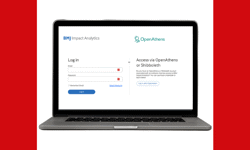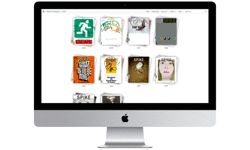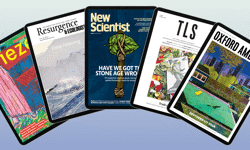
Strategically, communities give publishers year-round engagement to drive the shift to recurring-revenue models.
When we talk about community, we mean branded digital platforms where publishers control the user experience and have full access to data and insights. Not social media platforms – where algorithms determine whether your content and conversations will be seen by your readers/ subscribers, and the data is never yours.
Communities shouldn’t exist solely on digital platforms. The most successful publisher communities are where physical events and meet ups power the community through the year.
Some of the many benefits of publisher communities:
- Always-on digital communication, connection and collaboration with audiences to drive editorial and content
- Increases subscriber / members engagement
- Positively impacts publisher brands / value perception to drive retention
- Extends event life cycles: continues conversations, networking and delivers rich insight
- Deliver additional value to sponsors – extends awareness to lead-generation
At a recent PPA breakfast event, Xeim’s Richard Robinson explained why community is a core part of Econsultancy and Oystercatcher’s strategy. He urged publishers to get their planning, resourcing and technology right: “The most important community metrics for us are: logins, interaction, dwell time and financial spend. Publishers have to start with a purpose. What makes your community worthy of people’s time and attention? What are your business objectives? Financial? Brand metrics? Retention? Be clear.”
Many publishers who have tried community expected readers to engage and chat amongst themselves. At the same PPA event, I suggested that “it’s like hiring a venue and expecting attendees to self-organise and ‘get on’ with an event.”
There needs to be longer term thinking and a desire to not give up on community before starting to see ROI. Community is like brand building. It’s not a short-term part of your business strategy. It takes time and focus.
Our ten top tips for growing a successful publisher community:
- Have a clear, and stated, purpose / why for your community
- Community won’t succeed if senior people in your business aren’t leading, or participating
- The Host role is important. More so than the technology you choose
- You don’t need loads of 'content' to power a community – conversations are at the heart of engaged communities
- An event is not a community, it’s only one manifestation of the underlying community
- Don’t expect people will just 'get chatting / networking'
- When starting, go for ‘density’. Only create sub / specialist communities later
- Quality begets quality. Low-quality engagement is a trap. Demand high quality from the start
- Community is rewarding but hard: it can take a long time to succeed
- Naming is important; here are some pointers
There needs to be longer term thinking and a desire to not give up on community before starting to see ROI.
About Guild
Guild is a platform for professional groups, networks and communities. Easy to use, like a consumer messaging app, but purpose-built for professionals to connect, communicate and collaborate in a trusted environment. No ads, GDPR compliant, admin, analytics, integrations and dedicated customer support – Guild is the choice of media brands wanting to engage their subscribers, delegates, learners, sponsors etc.
Website: www.guild.co
Twitter: @tryGuild
LinkedIn: linkedin.com/company/tryguild
This article is part of our ‘Building Successful Communities’ special feature, looking at how publishers go about creating engaged and vibrant communities. The feature includes the following articles by publishers and suppliers:
Build engagement on your platform, by Sally Arnold
The money is in the conversation, by Lucy Brazier
Create spaces online to share opinions, by Gary Clement
Community first, magazine second, by Sophie Cross
Publishers are taking community seriously, by Ashley Friedlein
Find the right voice, by Esther Newman
Audience engagement is top priority, by Charles Thiede
Build connections & be interested, by Ed Walker
This article was first published in InPublishing magazine. If you would like to be added to the free mailing list, please register here.










